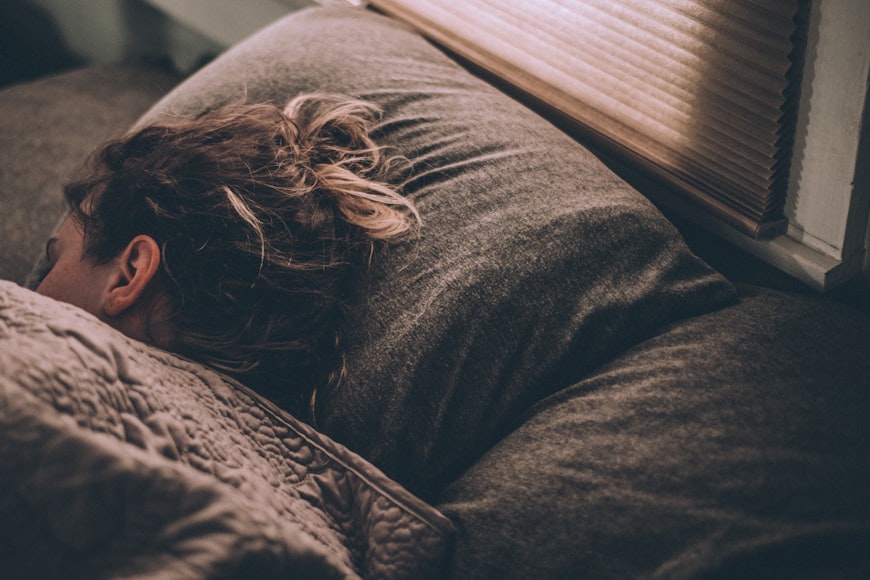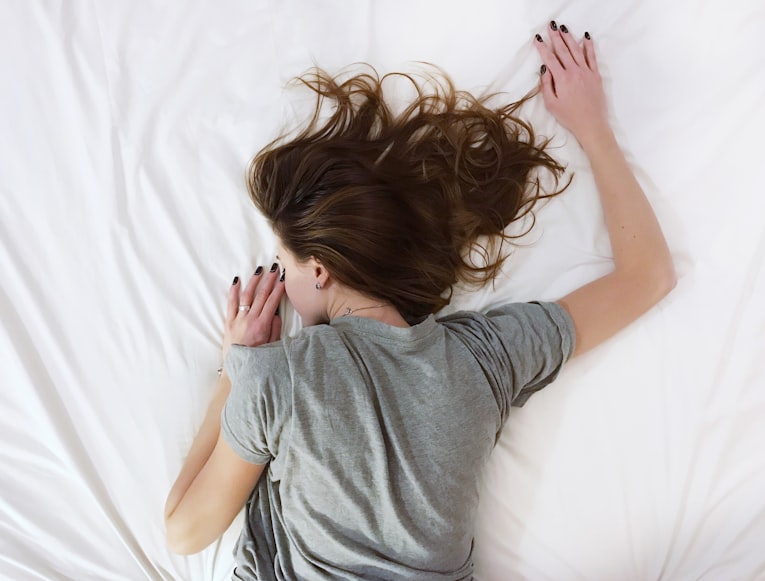The human body needs sleep to function properly, and the quality of your sleep can have an effect on your waking life. For example, getting enough sleep on a regular basis can lead to higher energy levels throughout the day, which makes you more productive at work or in school. Sleep deprivation, on the other hand, makes you more likely to feel tired and irritable, which can lead to lack of motivation and poor decision-making skills. Here are some simple ways you can improve your sleep schedule and get a good night’s rest every night.
1) Follow a routine before bed and avoid electronics

As you wind down for the day, try these steps:
- Follow your normal bedtime routine.
- Avoid electronics (TV, computer, phone) for an hour before bedtime.
- Use the bed only for sleep or sex.
- Don’t eat heavy meals before bedtime.
- Have something light to drink before bed if you’re thirsty.
- Don’t drink alcohol too close to your bedtime.
2) Keep a cool, comfortable environment in your bedroom
Keeping your bedroom cool and comfortable is the first step in getting a good night’s rest. You want to be able to sleep soundly without being too hot or cold, so make sure that your bedroom is the right temperature year round. The ideal room temperature in your bedroom is between 60-67 degrees Fahrenheit, which will help you stay comfortable throughout the night.
Keep your curtains open during the day for maximum sunlight exposure so that it can help lower your body temperature at night when it starts cooling down.
3) Establish a regular sleep schedule

Establishing a regular sleep schedule is one of the most important things you can do if you have trouble sleeping. Try going to bed and waking up at the same time every day, including weekends. This will help your body get into a natural sleep-wake cycle, which can make it easier for you to fall asleep at night. If you have trouble falling asleep, try practicing relaxing activities before bed such as taking deep breaths or reading something soothing for five minutes.
4) Avoid caffeine and alcohol before bed
Avoid caffeine before bedtime because it can keep you up at night. It takes about six hours for the caffeine in coffee to wear off, so if you drink coffee right before bed, it will make you more tired the next day. The same goes for alcohol. A nightcap might help you fall asleep faster, but it could disrupt your sleep cycle and leave you feeling groggy the next day.
5) Use comfortable sheets and limit noise and light exposure in your bedroom

Sleep is one of the most important things for your health, but it can be difficult. Here are some tips for getting a good night’s sleep:
- Make sure you have comfortable sheets that you don’t mind sleeping in. You should also wash them regularly.
- Limit noise and light exposure in your bedroom as much as possible by using earplugs or an eye mask.
6) Practice some relaxation techniques
- Take a warm bath before bed. A hot bath will relax your muscles, soothe your skin, and help you get ready for sleep. If you have trouble falling asleep, try adding some Epsom salts for extra relaxation benefits.
- Practice deep breathing exercises before bed. Deep breathing promotes relaxation and can help you fall asleep more quickly.
7) Avoid working or using electronic devices in bed

If you’re struggling with getting a good night’s sleep, there are a few things you can do to change that. One of the best things you can do is avoid working or using electronic devices in bed. All those light sources can mess up your circadian rhythm, which will lead to difficulty falling asleep.
8) Get up and move around every few hours
One way to improve your sleep schedule is by getting up and moving around every few hours. When you lay in bed for an extended period of time, your body will start to associate the bed with being awake. So, when you finally do decide it’s time for sleep, your body won’t know what to do. This can make it difficult for some people to fall asleep or stay asleep. It can also cause problems with insomnia because the brain wants you awake rather than asleep.
9) Take some time to wind down before bed

- Keep your room dark. Make sure there are no lights on in the room, or keep them low.
- Try not to eat too late at night. The food you eat can affect your sleep schedule, so try not to eat any time after 9 p.m., and make sure it’s nothing heavy that will upset your stomach or make you feel bloated.
10) Seek professional help if you’re still having trouble sleeping
If you’re still having trouble sleeping after trying these tips, it may be time to seek professional help. For some people, the solution is as simple as taking medication or adjusting their sleep schedule. Other times, more drastic measures are necessary such as behavioral therapy for insomnia.



